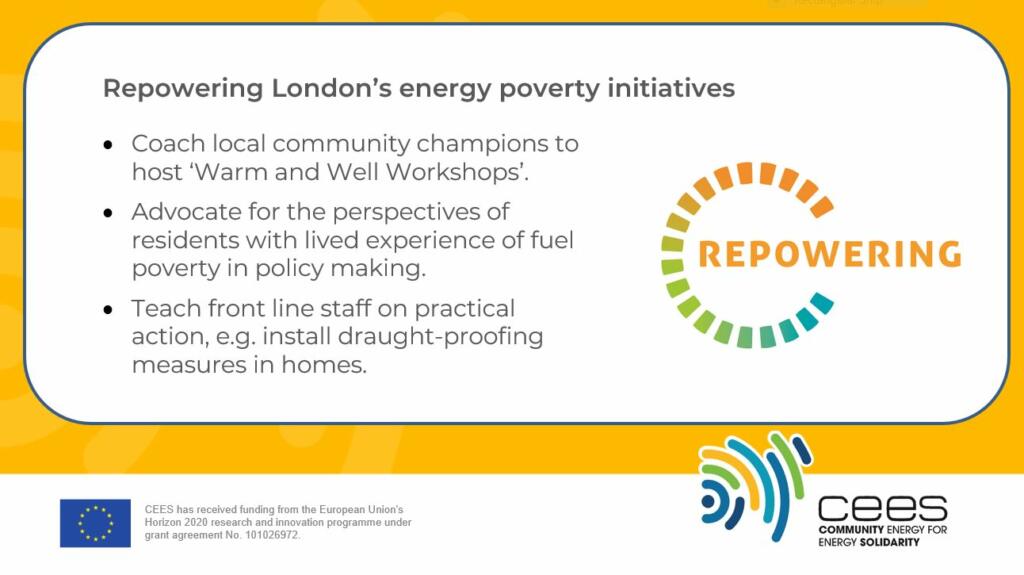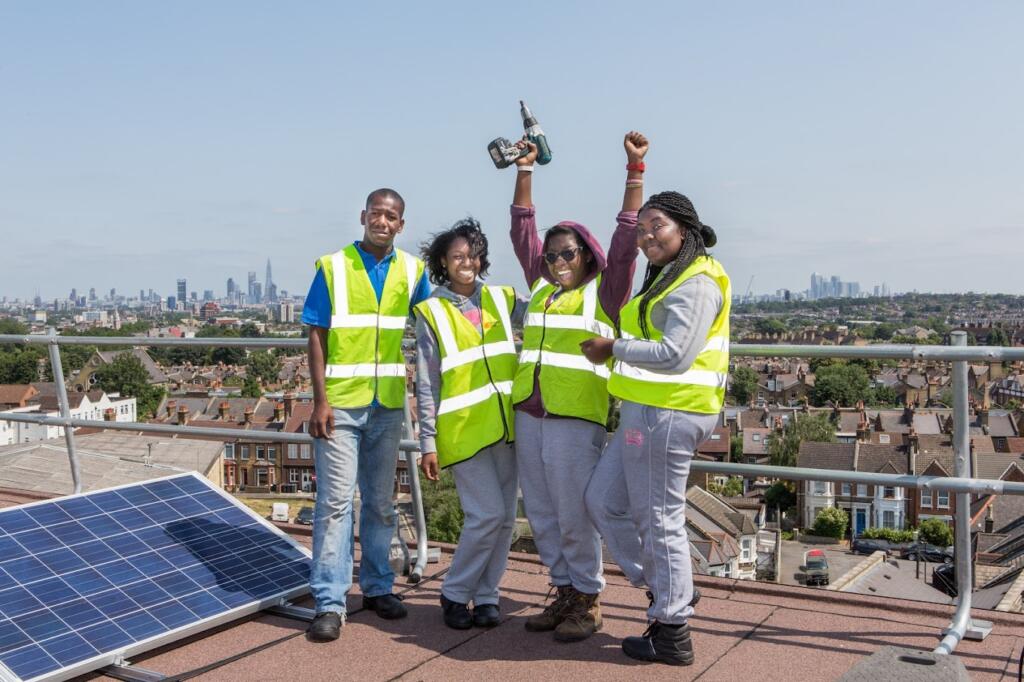Since late 2021,[i] the cost of living crisis has triggered a sharp increase – to an estimated 13.4% – in UK households experiencing fuel poverty.[ii] Repowering London is piloting a fundraising scheme to help.
For 12 years, Repowering London has been working with residents across the capital city to develop and manage community-owned renewable energy projects while also providing services to tackle energy poverty at the local level.
Largely relying on grants to set up community energy cooperatives (ECs), Repowering London then encourages members to engage in meaningful ways. In return for the support that Repowering London provides, for example, these ECs typically establish Community Funds, through which some of any profits they realise are fed into local projects or initiatives. Generally, these funding pots are relatively small and co-operative members collectively decide what they want to support.
While both traditional financing streams are vital to Repowering London, they have some constraints and tend to require considerable time to secure.

To respond quickly to increased need among individual households arising from the economic crisis, Repowering London is now seeking to diversify its financing. As part of CEES, it is piloting a micro-donation scheme, targeting people and entities in the community. In addition to securing some unrestricted funds, Repowering London aims to work with local Community Leads and volunteers to co-create initiatives that best fit the needs of people in their communities.
Building a microdonations campaign
Having set a goal to raise €10 000 (~£8 500) through small donations by the winter of 2023/24, Repowering London has established two complementary routes to success. While they have a strong track record of fundraising through community share offers for solar cooperatives, a micro-donation scheme is new territory – and Repowering London is learning on the way.
One tack involves developing a pitch to convince local businesses (small or large) to donate to Repowering London within their corporate social responsibility (CSR) strategies. Key lessons so far include recognising that it takes time to build relationships with potential donors, particularly in terms of making sure the engagement is mutually beneficial. As each potential contributor has its own priorities and resources, there is no ‘clear-cut’ or linear process to the end goal. In turn, there are new aspects of logistics and operations to consider.

The fact that Repowering London exists as a Community Benefit Society in the UK – and not a registered charity – adds a level of complexity for fundraising activities, particularly in that it cannot offer tax receipts to funders. It has also had to consider certain impacts on its existing financial management processes.
Finally, in parallel to the micro-donation scheme, Repowering London is exploring the option to develop more commercial service offerings for certain aspects of its work. Examples of this include community engagement as a service and emerging support services for the home retrofit process.
New challenges can create new opportunities
The urgent needs that arose in winter 2022/23 as energy prices shot up in the UK prompted entities active in tackling energy poverty to form new coalitions and campaigns to launch collective action.
In late 2022, Repowering London joined forces with the local Community Energy London network to support and learn from a small crowdfunding campaign targeting individuals. The funds raised – ~€2 800 (£2 483) – were distributed within the Community Energy London network to support energy efficiency measures for individuals in fuel poverty. Learnings from this campaign ultimately shaped Repowering London’s own micro-donations approach.
In engaging with small businesses, Repowering London has also found that many were facing their own challenges with higher energy bills. In some cases, Repowering London has been able to provide guidance on ways to improve their own energy efficiency. Seeing the difficulties small businesses face, Repowering London is also looking to prioritise securing funding from the CSR budgets of larger companies.
Inspiration from other CEES partners
Repowering London has been inspired by the micro-donations and energy surplus models of the Energie Solidaire, which allow members and clients of Enercoop to contribute as an alternative to relying only on grant funding. As Repowering London does not directly supply energy to a large number of consumers, however, this micro-donation model could not be applied directly. Repowering London instead adapted the Enercoop approach of seeking small donations from individuals or businesses.
Repowering London is also drawing on the experience of other CEES partners – including ZEZ and ALIenergy – that are piloting new fundraising approaches.
[i] Institute for Government (2022), “Cost of Living Crisis”
[ii] Department for Energy Security & Net Zero, UK Government (2023), “Annual Fuel Poverty Statistics in England, 2023 (2022 data)”